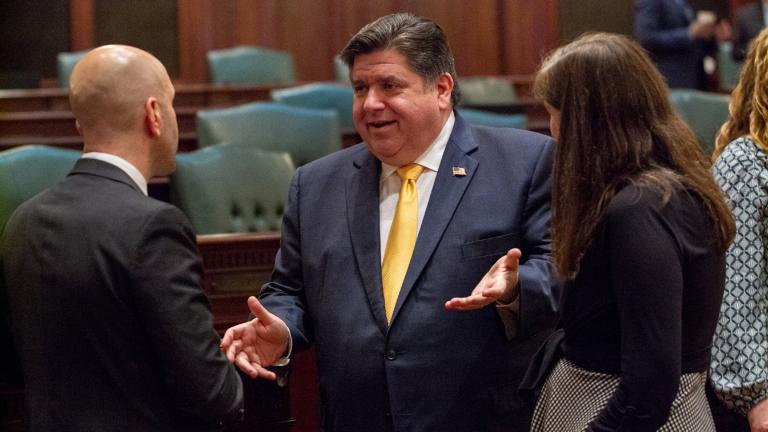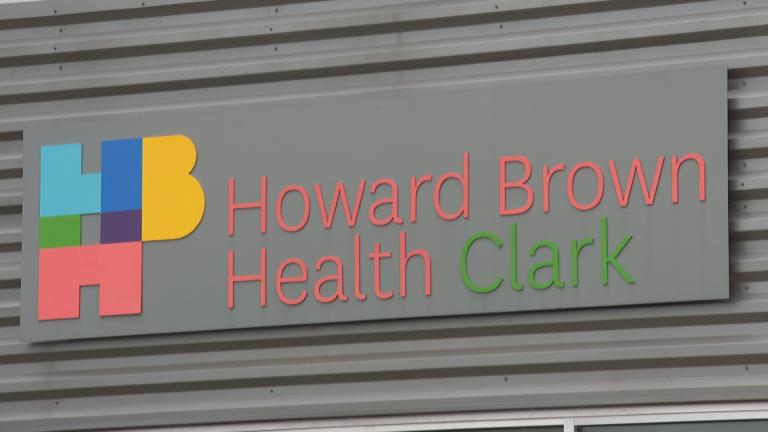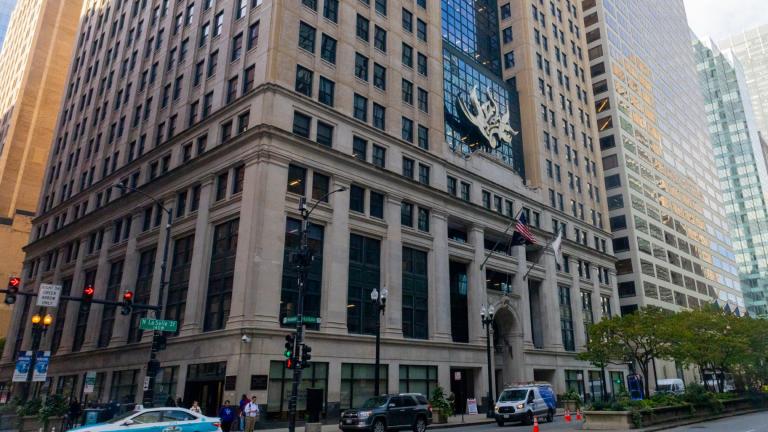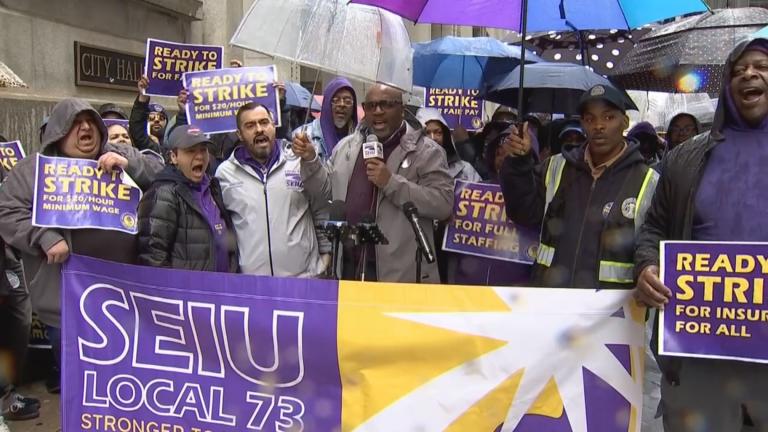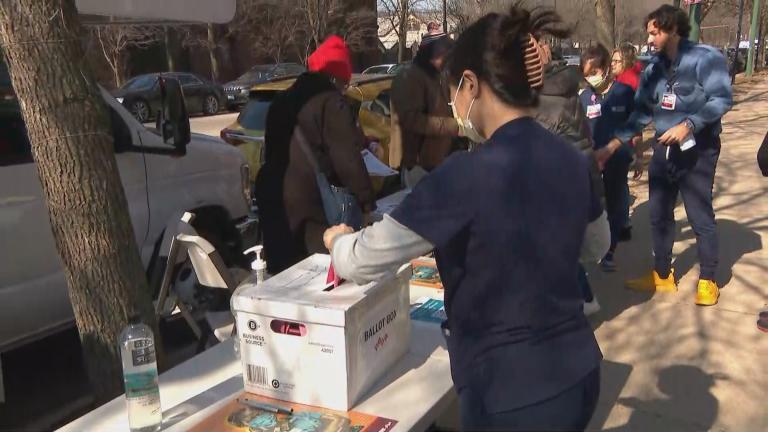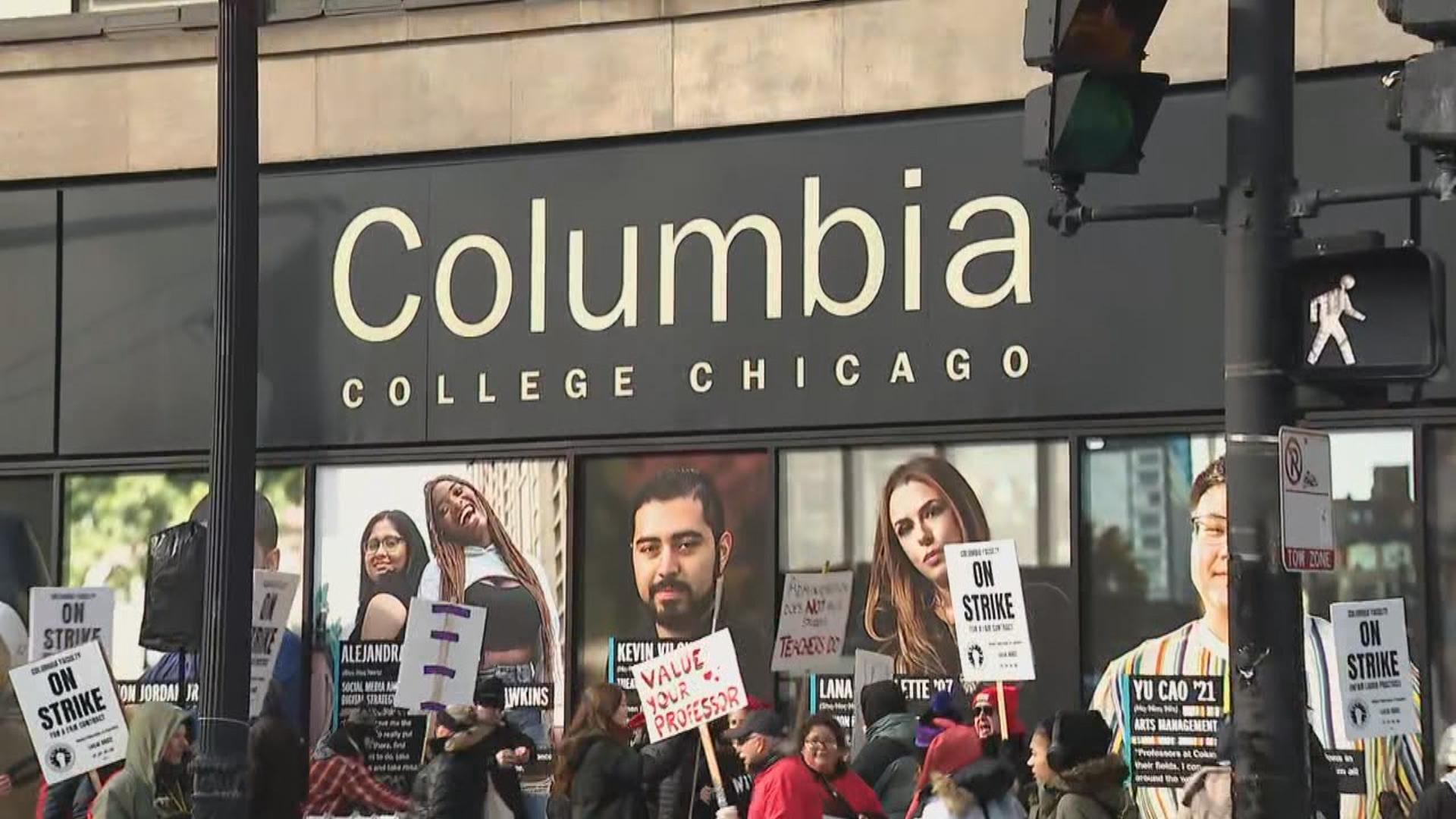 Part-time faculty members at Columbia College hold a rally on Oct. 30, 2023. (WTTW News)
Part-time faculty members at Columbia College hold a rally on Oct. 30, 2023. (WTTW News)
Nearly 600 part-time faculty members at Columbia College Chicago remain on strike this week as part of what they say is the longest work stoppage of its kind in higher education history.
Following the Thanksgiving break, faculty members represented by the Columbia College Faculty Union (CFAC) have entered the fifth week of the ongoing strike.
Issues arose amid ongoing contract negotiations, which began earlier this year. But tensions increased weeks before the academic year began when Columbia College eliminated more than 50 class sections for the current fall semester and 317 class sections for the upcoming spring semester — courses typically taught by part-time faculty.
Adjunct faculty officially began their strike in late October. This week, the work stoppage passed the 30-day mark, which the union said is the longest ever for adjunct faculty in higher education.
“I’ve been here long enough to see what’s been happening,” said adjunct faculty member Deana Kobrynski, who has worked at Columbia College since 2001. “This is really an anomaly. It’s upsetting.”
Union officials said administration locked out professors from their classrooms and numerous adjunct classes — which are typically taught by striking faculty — will now be taught by department chairs and some full-time faculty.
About 60% of classes were meeting before the Thanksgiving break, according to the college, which expects nearly all courses to have resumed by the end of this week.
“The administration’s decisions compromise the very core of our students’ education,” CFAC President Diana Vallera said in a statement. “Their insistence on burdening students and marginalized instructors for their mismanagement is unacceptable. We continue to negotiate tirelessly, unwavering in our conviction that student learning must be central.”
The union is demanding “significant course restorations” for the spring semester, appropriate class sizes and job security for part-time employees, who typically work on semester-to-semester contracts.
Laurie Little, an adjunct faculty member who has taught courses in Documenting Social Injustice and Culture Race and Media, said Columbia College has been pitched to students as a place where they can learn from working professionals in small classes.
“If you’re going to get rid of all the adjuncts, the whole idea of that goes away,” she said.
Kobrynski, an instructor in the college’s Cinema and Television Arts Department, said those most impacted have been the students.
“It’s stressful for me, it’s stressful for them,” she said. “Students are already at a high level of anxiety at the end of a semester.”
According to a Columbia College spokesperson, the changes in class offerings and sizes were “a necessary adjustment to enrollment and financial realities,” and were made “responsibly in a way to ensure the continued delivery of a successful academic experience.”
“The college has a responsibility to make difficult decisions to steer the college through a financial challenge,” the spokesperson said, “for the sake of current students as well as future generations of creatives.”
The college said it offered the union pay increases and expanded health care benefits, along with a pledge to restore 50 course sections to the spring schedule and create an advisory committee on class sizes.
According to the college’s special counsel Terence Smith and Chief of Staff Laurent Pernot, giving in to the union’s demands — including guaranteed employment a majority of part-time faculty — would “undermine the college’s ability to make decisions to address the financial challenges faced by Columbia.”
“As a result, the union has signified that the strike will continue, even as the two teams have agreed to continue to actively seek an agreement,” Smith and Pernot said in a statement Monday.
The union contends that it has not received a line-item budget supporting Columbia College’s claim that a financial crisis necessitated the course changes. It has also filed unfair labor practice complaints against the college.
Faculty members have launched a GoFundMe to help support employees who are continuing to go without pay during the strike.
Columbia College officials met with union negotiators over the Thanksgiving weekend and said they’ve continued to meet each day since, but the sides remain deadlocked.
“I’m one of those glass-half-full types,” Little said. “I feel a little bit hopeful, but I think from what I’ve seen in the last few weeks I’m very disheartened and bummed out. … It’s a tough one. I’ve never been in a strike like this.”

